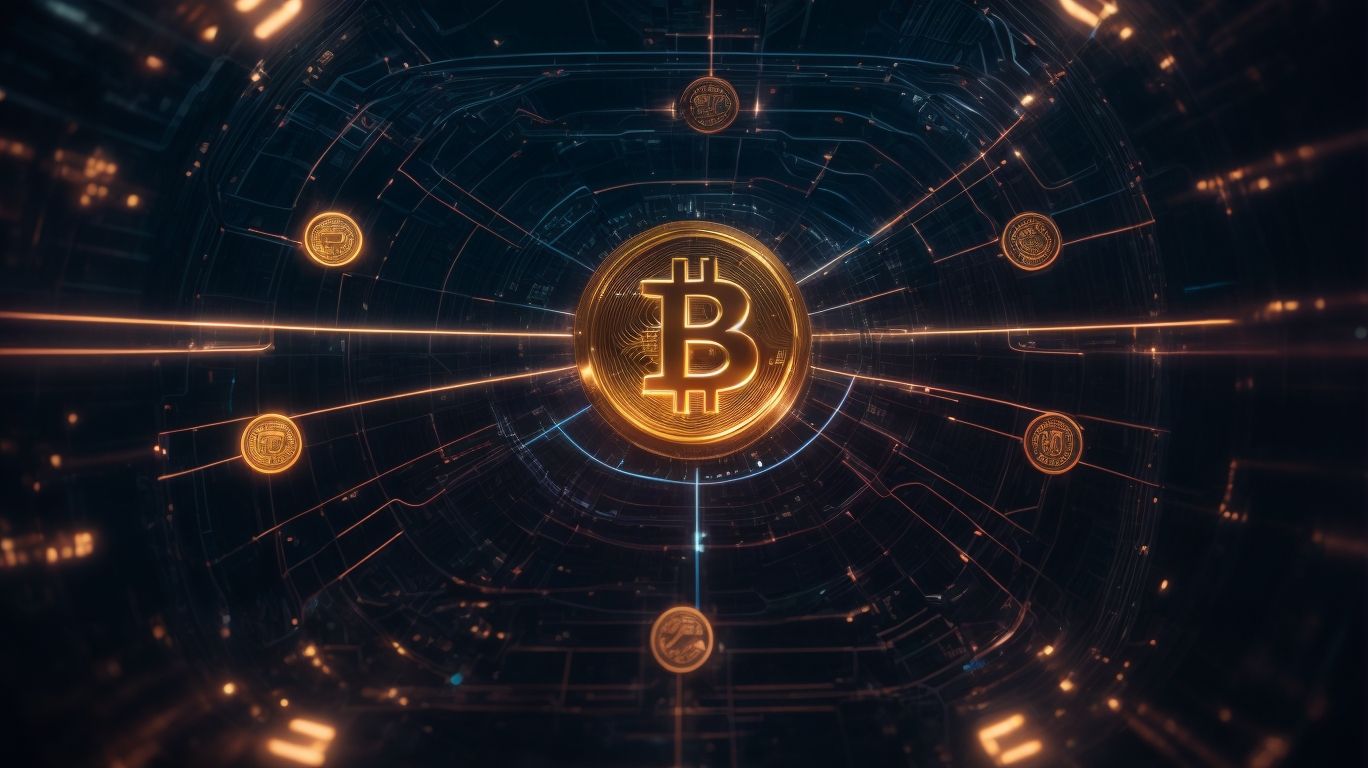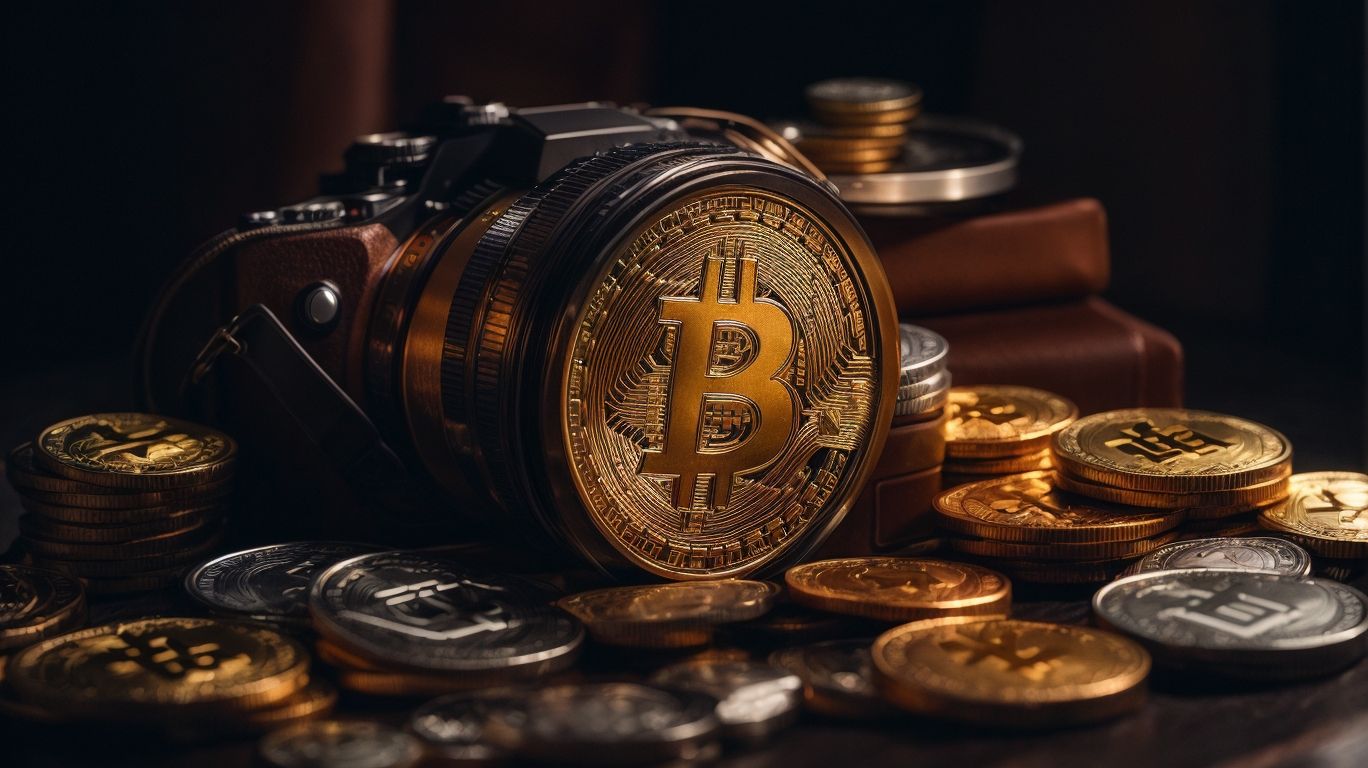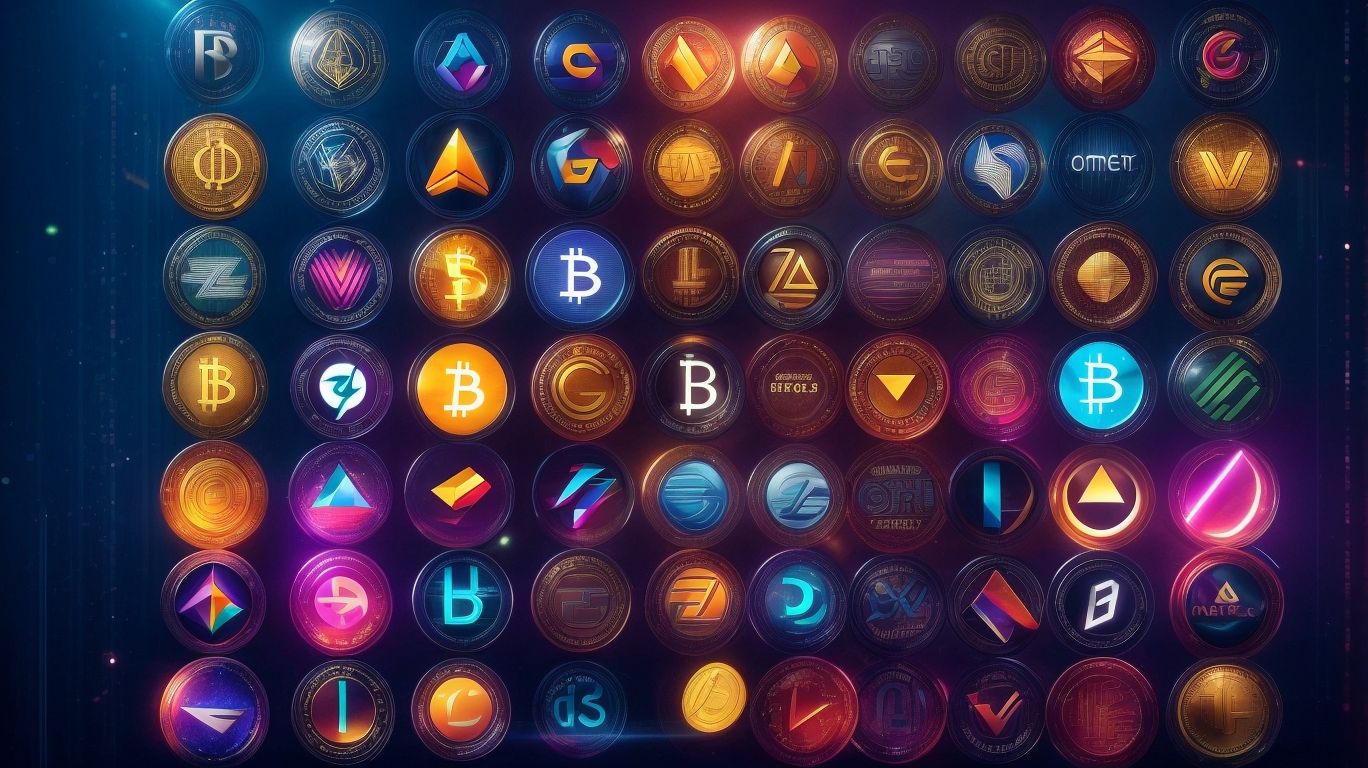top decentralized exchanges decentralized crypto exchange list
Decentralized exchanges (DEX) have gained significant popularity in the world of cryptocurrency trading. Unlike centralized exchanges that rely on intermediaries to facilitate transactions, DEX operates on a peer-to-peer network, allowing users to trade directly with each other. This article aims to provide an overview of decentralized exchanges, their advantages, and some of the top DEX options available in the market.
Decentralized exchanges differ from centralized exchanges in their underlying architecture. While centralized exchanges require users to deposit funds into a centralized wallet controlled by the exchange, DEX enables users to retain control of their funds by connecting their wallets directly to the exchange. This enhances security and eliminates the need to trust a centralized authority with your assets.
The advantages of using DEX extend beyond security. DEX offers greater financial control as users can trade without the need for KYC (Know Your Customer) requirements or geographical restrictions. DEX is often associated with lower transaction costs and faster settlement times compared to traditional exchanges.
Now, let’s explore some of the top decentralized exchanges available in the crypto market. These include Uniswap, SushiSwap, PancakeSwap, 1inch, and Curve Finance. Each of these DEX platforms provides unique features and benefits for users seeking decentralized trading options.
To understand how decentralized exchanges work, it is essential to grasp the concept of liquidity pools and automated market makers (AMMs). DEX leverages smart contracts to pool user funds, creating liquidity for trading. AMMs, such as Uniswap, use algorithms to determine token prices based on the ratio of assets in the liquidity pool.
Using decentralized exchanges offers several benefits. First, enhanced security and privacy are achieved as users maintain control over their funds. Second, decentralized exchanges reduce counterparty risk by eliminating the need for intermediaries. Lastly, DEX empowers users with greater financial control, allowing them to trade freely without relying on centralized authorities.
While DEX has its advantages, there are considerations and risks to be aware of. Impermanent loss, a temporary loss in value due to price volatility, is one such factor. Smart contract vulnerabilities and the lack of robust customer support are also potential drawbacks. It is crucial for users to thoroughly research and understand the risks associated with decentralized exchanges before engaging in transactions.
Key takeaways:
- Uniswap leads as a top decentralized exchange: Uniswap is a trusted decentralized exchange that allows users to trade cryptocurrencies directly from their wallets without relying on intermediaries.
- SushiSwap offers additional features: SushiSwap has gained popularity for its added features such as yield farming, enabling users to earn passive income by providing liquidity to the platform.
- Consider risks and benefits: While decentralized exchanges offer enhanced security, reduced counterparty risk, and greater financial control, impermanent loss, smart contract vulnerabilities, and limited customer support should be considered.
What are Decentralized Exchanges ?

Photo Credits: Cryptomeek.Com by Kenneth Lewis
Decentralized exchanges (DEXs) are platforms that facilitate direct peer-to-peer transactions without relying on a central authority. What are Decentralized Exchanges? Unlike traditional exchanges, DEXs do not require intermediaries to hold users’ funds. Instead, users keep control of their assets in their own wallets. DEXs offer greater security and privacy as they eliminate the risk of hacks or theft from centralized servers. They also provide more transparent and censorship-resistant trading. Popular DEXs include Uniswap and PancakeSwap. These platforms have gained popularity due to their ability to empower individuals to trade cryptocurrencies freely and securely.
How do DEX differ from centralized exchanges?
Decentralized exchanges (DEX) differ from centralized exchanges in several key ways:
| Aspect | Centralized Exchanges | Decentralized Exchanges |
|---|---|---|
| Control | Operated by a centralized entity | Decentralized and governed by smart contracts |
| Ownership | Users do not have direct ownership of their assets | Users have full ownership and control of their assets |
| Intermediaries | Require intermediaries for order matching and settlement | No intermediaries needed; peer-to-peer transactions |
| Security | Centralized exchanges are vulnerable to hacks | Decentralized nature reduces risk of hacking |
| Privacy | Central exchanges may require personal information | Decentralized exchanges offer increased privacy |
How do DEX differ from centralized exchanges?
Advantages of using DEX
“`
- Advantages of Using DEX:
- Enhanced Security and Privacy: DEXs utilize blockchain technology, which offers transparent and tamper-proof transactions, protecting user data and funds.
- Reduced Counterparty Risk: DEXs eliminate the need for intermediaries, allowing users to trade directly without relying on a third party to hold their assets.
- Greater Financial Control: DEXs give users full control of their private keys, ensuring ownership and control over their funds at all times.
These advantages make DEXs an attractive option for those seeking a more secure and decentralized approach to cryptocurrency trading.
“`
Top Decentralized Exchanges

Photo Credits: Cryptomeek.Com by Gabriel Mitchell
Look no further for the top decentralized exchanges in the world of cryptocurrency! Brace yourself as we dive into the electric world of Uniswap, SushiSwap, PancakeSwap, 1inch, and Curve Finance. From liquidity provision to yield farming, these platforms have revolutionized the way we trade and interact with digital assets. Get ready for a thrilling ride as we explore the unique features, trading volumes, and user experiences of each of these trailblazing decentralized exchanges.
1. Uniswap
Uniswap, a leading decentralized exchange (DEX), provides a smooth and effortless method for trading cryptocurrencies. Follow these steps to utilize Uniswap:
- Connect your digital wallet, such as MetaMask, to Uniswap.
- Select the tokens you desire to trade.
- Specify the amount you wish to exchange.
- Review and authorize the transaction.
- Wait for the trade to be executed on the blockchain.
Fact: Since its launch, Uniswap has gained tremendous popularity and facilitated trades worth over $100 billion.
2. SushiSwap
- SushiSwap is a decentralized cryptocurrency exchange that operates on the Ethereum blockchain network.
- It was created as a community-driven fork of the popular decentralized exchange, Uniswap.
- SushiSwap allows users to trade and provide liquidity for various ERC-20 tokens.
- One of the unique features of SushiSwap is its SUSHI token, which serves as the governance and incentivization token for users.
- Users can earn rewards by staking their tokens in SushiSwap’s liquidity pools.
Pro-tip: Before using SushiSwap or any decentralized exchange, it’s important to do thorough research, understand the risks involved, and only invest what you can afford to lose.
3. PancakeSwap
PancakeSwap is one of the top decentralized exchanges (DEX) currently available in the crypto market. Here are some key features and benefits of PancakeSwap:
4. 1inch
1inch is a decentralized exchange (DEX) that operates on the Ethereum blockchain. As one of the top DEXs, 1inch offers several benefits and features for users.
- Aggregator: 1inch aggregates liquidity from various DEXs to provide users with the best rates for their trades.
- Low Fees: By using its own token, 1INCH, users can enjoy reduced fees on transactions within the platform.
- Limit Orders: Unlike many other DEXs, 1inch supports limit orders, allowing users to set specific conditions for their trades.
- Gas Optimization: The platform optimizes gas usage to minimize transaction costs.
- User-Friendly Interface: 1inch offers an intuitive and user-friendly interface, making it easy for beginners to navigate.
By offering competitive rates, low fees, and advanced features, 1inch has become a popular choice among traders in the decentralized finance (DeFi) ecosystem.
5. Curve Finance
Curve Finance is a well-known decentralized exchange (DEX) recognized for its efficient and low-slippage trading of stablecoins. As a pioneer in the field, Curve Finance leverages an automated market maker (AMM) algorithm to ensure optimal trading and provide ample liquidity. The platform’s primary emphasis lies in facilitating seamless swaps between different stablecoins, minimizing slippage, and maximizing precision. Such features make Curve Finance immensely appealing to traders who prioritize stability and accuracy in their transactions. Moreover, it has gained immense popularity among DeFi enthusiasts owing to its ability to offer high-yield opportunities while maintaining a low-risk profile. Being one of the leading DEXes in the market, Curve Finance continues to provide a reliable and user-friendly environment for decentralized trading.
How Do Decentralized Exchanges Work?

Photo Credits: Cryptomeek.Com by Gabriel Miller
Decentralized exchanges are revolutionizing the world of cryptocurrency trading. Wondering how they work? Get ready for a wild ride as we dive into the inner workings of decentralized exchanges. From liquidity pools and automated market makers to smart contracts and wallet integration, we’ll explore the fascinating mechanics that power these platforms. Buckle up and prepare to discover the cutting-edge technology behind decentralized exchanges that is reshaping the crypto landscape.
Liquidity Pools and Automated Market Makers
Decentralized exchanges (DEX) leverage liquidity pools and automated market makers to enable trading without intermediaries. These mechanisms empower users to contribute liquidity to the platform and earn fees in return. Here are some crucial points about liquidity pools and automated market makers in DEX:
- Liquidity Pools: In DEX, users create liquidity pools by depositing their cryptocurrency into a smart contract. These pools act as a fund source for trading.
- Automated Market Makers: Automated market makers (AMMs) are algorithms that determine asset prices in a liquidity pool based on supply and demand. They provide liquidity by automatically adjusting prices to maintain equilibrium.
- Price Impact: As trading volume increases, the liquidity pool’s asset supply can deplete, resulting in price slippage or higher transaction costs.
- Pool Rewards: Liquidity providers earn a portion of the trading fees generated by the DEX. The amount earned is proportional to their contribution to the pool.
- Impermanent Loss: Liquidity providers may encounter impermanent loss if the price of deposited assets significantly diverges from the pool’s average price.
By comprehending liquidity pools and automated market makers, users can actively participate in DEX and foster platform efficiency and liquidity.
Smart Contracts and Wallet Integration
- Smart contracts and wallet integration are key components of decentralized exchanges (DEX). This integration allows for seamless and secure transactions within the DEX ecosystem. Here are some important points to consider:
- Smart contracts: DEX platforms utilize smart contracts to automate and enforce transactions. These contracts eliminate the need for intermediaries, providing transparency and trust in the exchange process.
- Wallet integration: DEXs incorporate wallet integration to enable users to have control over their funds. Wallets securely store users’ private keys, allowing them to access and manage their assets on the DEX platform.
The combination of smart contracts and wallet integration provides users with the ability to trade directly with each other, ensuring privacy, security, and control over their assets within the decentralized exchange ecosystem.
Benefits of Using Decentralized Exchanges

Photo Credits: Cryptomeek.Com by Thomas Moore
If you’re looking to up your crypto game, decentralized exchanges offer a world of benefits. Say goodbye to worries about security breaches and prying eyes. In the upcoming sub-sections, we’ll uncover how decentralized exchanges provide enhanced security and privacy. We’ll also delve into how they reduce counterparty risk, giving you peace of mind. And let’s not forget the cherry on top – greater financial control. Get ready to take charge of your crypto journey like never before!
1. Enhanced Security and Privacy
Enhanced security and privacy are key advantages of using decentralized exchanges (DEX). Here are some reasons why:
- 1. User Control: DEX allows users to maintain control over their funds as they don’t need to deposit them into a centralized platform.
- 2. Non-Custodial: DEX operates through smart contracts, eliminating the need for users to trust a third party with their funds.
- 3. Anonymity: DEX transactions often require minimal personal information, preserving user privacy.
- 4. Hack Resistance: DEX decentralized nature makes them less vulnerable to hacks or data breaches.
In 2016, a decentralized exchange called EtherDelta was launched, allowing users to trade Ethereum-based tokens directly from their wallets. This marked a significant milestone in the development of decentralized exchanges, revolutionizing the way users could trade cryptocurrencies securely and privately. Since then, the popularity of DEX has grown, providing a viable alternative to centralized exchanges while ensuring enhanced security and privacy for users.
2. Reduced Counterparty Risk
Reduced counterparty risk is a significant advantage of decentralized exchanges (DEX). By eliminating intermediaries and relying on smart contracts, DEX effectively eliminates the need for users to trust a central authority, thereby reducing the risk associated with counterparty involvement. This proactive approach helps safeguard against exchange hacks and insolvency risk commonly associated with centralized exchanges. The risk reduction inherent in DEX transactions stems from their peer-to-peer nature, allowing users to maintain control over their funds throughout the entire trading process. Nevertheless, it’s essential to recognize that DEX trading carries additional risks, such as liquidity challenges and vulnerabilities inherent in smart contracts. To minimize counterparty risk, it is highly recommended to conduct thorough research and solely utilize reputable DEX platforms.
3. Greater Financial Control
- Greater Financial Control: Decentralization is a key advantage of using decentralized exchanges (DEX) as it allows users to have full control of their funds, eliminating the need for third-party intermediaries.
- Self-custody: Users hold their private keys, ensuring that they have complete ownership and control over their assets.
- No withdrawal limits: Users can enjoy greater financial control on DEXs as they can withdraw their funds at any time without restrictions or delays.
- Fewer restrictions: DEXs offer greater financial control by having fewer regulatory requirements, enabling users to freely trade a wider range of assets.
- No central authority: DEXs operate on blockchain technology, ensuring transparency and removing the potential for manipulation by a central authority.
Considerations and Risks of Decentralized Exchanges

Photo Credits: Cryptomeek.Com by Jose Flores
Decentralized exchanges offer exciting opportunities for crypto trading, but let’s not overlook the potential risks. In this section, we’ll dive into crucial considerations and risks associated with these platforms. We’ll explore the concept of impermanent loss, the vulnerabilities of smart contracts, and the challenges of limited customer support. Stay informed to make informed decisions in the decentralized exchange landscape!
1. Impermanent Loss
Impermanent loss, also known as IL, is a common concern that liquidity providers may face when utilizing decentralized exchanges (DEX). It refers to the potential loss of value that liquidity providers may experience due to price fluctuations in the assets being traded. This loss can occur when there are changes in the value of the underlying assets of a liquidity pool while they are being provided as liquidity. To effectively deal with impermanent loss, it is crucial to carefully select the assets to be provided, taking into account factors such as volatility and correlation. By diversifying the liquidity across multiple pools and regularly monitoring and adjusting the positions, it is possible to minimize the impact of impermanent loss.
2. Smart Contract Vulnerabilities
Smart contract vulnerabilities are a significant concern when it comes to decentralized exchanges (DEX). If you want to mitigate this risk, here are some steps to consider:
- Thoroughly audit smart contracts: Before deploying a smart contract on a DEX, it is crucial to conduct a comprehensive security audit. This helps identify and fix potential vulnerabilities in the code related to smart contract vulnerabilities.
- Regular code updates: Smart contracts should be regularly updated to address any newly discovered vulnerabilities related to smart contract vulnerabilities. Keeping up with security patches and fixes is essential to maintain the integrity of the DEX.
- Implement multi-signature capabilities: Using multi-signature wallets adds an extra layer of security to DEX operations. It requires multiple private keys to authorize transactions, reducing the risk of a single point of failure. This helps protect against smart contract vulnerabilities.
- Engage in responsible bug reporting: Encourage users to report any vulnerabilities they discover in the smart contracts. Provide a clear process for bug reporting and actively work on fixing reported issues promptly related to smart contract vulnerabilities.
In 2016, a smart contract vulnerability on the Ethereum blockchain led to the infamous DAO hack, resulting in the loss of millions of dollars. This event highlighted the importance of robust smart contract development and prompted the Ethereum community to implement new security measures into future decentralized applications.
3. Limited Customer Support
Limited customer support is a significant aspect to consider when utilizing decentralized exchanges (DEX). Despite the many advantages that DEX offer, such as increased security and reduced counterparty risk, they often lack the customer support services that centralized exchanges provide. This limitation can be attributed to the decentralized nature of DEX, where there is no central authority available to address user concerns or offer assistance. Users may need to depend on community forums and online resources for help, which may not always deliver timely or comprehensive support. Therefore, it is essential to acknowledge this constraint when utilizing DEX and be prepared to navigate any issues independently.
Some Facts About Top Decentralized Exchanges
- ✅ There are 149 decentralized exchanges (DEXs) listed on Alchemy’s Dapp Store. (Source: Our Team)
- ✅ The top decentralized exchange “0x” offers flexible smart contracts for building decentralized exchanges and trading protocols. (Source: Our Team)
- ✅ Slingshot is an Ethereum-based swapping protocol with 0% fees that supports chains like Arbitrum, Polygon, BNB Chain, and Optimism. (Source: Our Team)
- ✅ Uniswap is an Ethereum-based DEX that enables swapping ERC-20 tokens through liquidity pools and supports chains such as Ethereum, Polygon, Arbitrum, and Optimism. (Source: Our Team)
- ✅ 1inch is a DEX aggregator that powers flexible swaps and trades across multiple chains, including Ethereum, Arbitrum, Optimism, Polygon, and more. (Source: Our Team)
Frequently Asked Questions
1. What are decentralized exchanges (DEXs) and why are they popular in the crypto market?
Decentralized exchanges (DEXs) are platforms that allow users to trade cryptocurrencies directly with each other without the need for intermediaries or centralized authorities. They leverage blockchain technology and smart contracts to enable peer-to-peer trading. DEXs have gained popularity in the crypto market due to their enhanced security, privacy, and autonomy compared to traditional centralized exchanges.
2. Which are some of the top decentralized exchanges (DEXs) based on trading volumes and market share?
According to CoinMarketCap’s rankings, some of the top decentralized exchanges (DEXs) are:
- dYdX: It is ranked first with a 24-hour trading volume of $688,269,261 and a market share of 22.8685%.
- Uniswap v3 (Ethereum): Ranked second with a trading volume of $459,015,893 and a market share of 17.5176%.
- Uniswap v3 (Arbitrum): Ranked third with a trading volume of $175,643,697 and a market share of 6.7032%.
- Uniswap v2: Ranked fourth with a trading volume of $137,704,417 and a market share of 5.2553%.
- PancakeSwap v3: Another popular DEX with a significant trading volume and market share.
3. What are the key features of Uniswap v2 and how does it stand out?
Uniswap v2 is a swap-based decentralized exchange (DEX) that offers several notable features:
- Swapping ERC-20 tokens: It enables users to trade Ethereum-based tokens directly through liquidity pools.
- Wide range of markets: Uniswap v2 supports over 1400 markets, providing ample options for traders.
- Established history: Launched in November 2018, Uniswap v2 has a track record and reputation in the crypto market.
4. Can you provide information about Yield Yak and its offerings?
Yield Yak is a decentralized finance (DeFi) protocol operating on the Avalanche chain. It offers the following features:
- Auto-compounding yield farms: Yield Yak provides automated compounding of yields from various yield farming strategies.
- DEX aggregation: It aggregates liquidity and trading opportunities from multiple decentralized exchanges (DEXs).
- Liquid staking tools: Yield Yak enables users to easily stake their assets and participate in staking protocols on the Avalanche network.
5. What is the significance of Alchemy’s Dapp Store in the context of decentralized exchanges (DEXs)?
Alchemy’s Dapp Store is a valuable resource for users seeking information about decentralized exchanges (DEXs). It offers a comprehensive list of 149 DEXs across various web3 ecosystems, including Ethereum and others. Users can explore different trading protocols, decentralized derivatives, and options. Projects can also submit their own DEXs for review and inclusion in the list, ensuring an up-to-date and diverse selection for users.
6. Can you list some of the chains supported by 1inch, a prominent DEX aggregator?
1inch is a notable DEX aggregator that supports multiple chains, including:
- Ethereum
- Arbitrum
- Optimism
- Polygon
- Avalanche
- BNB Chain
- Fantom
- Gnosis Chain
- zkSync
- Klaytn




















